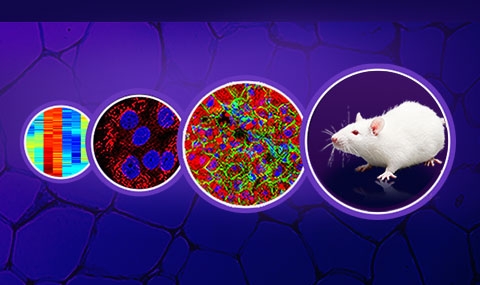The p53 transcription factor is the most frequently mutated tumor suppressor gene in human cancer. In approximately 50% of human cancers p53 is mutated and in many of the remaining cases, the function of the retained wild type p53 protein is compromised. p53 knockout mice develop tumors with short latency and 100% penetrance. These observations demonstrate the critical role of p53 in tumor prevention.
p53 is a strong tumor suppressor because it is situated in the midst of a critical signaling hub. Different input signals such as oncogene activation, DNA damage, mitotic impairment or
oxidative stress must be assimilated by p53 to initiate the correct transcriptional response promoting DNA repair, cell cycle arrest, senescence or apoptosis; the ultimate goal being to eliminate cancer-prone cells from the replicative pool.
Unlike other tumor suppressors, the majority of cancer-associated mutations in p53 are missense mutations residing in its DNA binding domain, often leading to loss of its tumor suppressive activity and in some cases to gain of novel oncogenic functions. In one of our projects, we are systematically expressing a panel of different cancer-associated mutant p53 variants to examine their impact on cell autonomous (proliferation, migration, metabolism, genomic instability) and non-cell autonomous (recruitment of immune cells, fibroblasts and other elements of the tumor microenvironment) functions.


